If you’re a woman seeking out that extra layer of security and protection, a big and intimidating guard dog might seem like a perfect fit.
As a Rottweiler owner, I want to preface this by saying that there’s no ideal guard dog for everybody.
Whatever guard dog you’ll ultimately end up getting, they’ll stay with you for a big chunk of your life and, more importantly, their whole life.
What will be different about this article?
I’m not just dumping a trillion breeds on you with tiny bits and pieces of background on each breed.
You can google that. Kennel clubs literally have dog breed profiles just for that.
Also, let’s be real; rare breeds such as the Komondor are of little interest to everyday dog owners.
But what you can’t get easily elsewhere are the real questions.
I’ll tell you, from woman to woman, how you can figure out the ideal guardian for you and your lifestyle.
I’ve even created a little quiz to nudge you in the right direction.
Fun fact: This study has shown that having a dog increased women’s perceived security and having any dog at all acts as a major deterring factor in homes.
This fits perfectly with my article on whether dogs guard while you sleep.
Let’s dive in! Here are my 13 favorite picks for guard dogs for women:
- Rottweiler
- Doberman
- Cane Corso
- Belgian Malinois
- German Shepherd
- Newfoundland
- Great Dane
- Boxer
- Bernese Mountain Dog
- Appenzeller Sennenhund
- Giant Schnauzer
- Akita
- Jack Russell Terrier
Why did I choose these breeds?
Why Are These 13 Guard Dogs Suitable for Women?
Every dog will come with different capabilities and needs.
The Rottweiler, Doberman, Cane Corso, Belgian Malinois, and German Shepherd are all favorites for protection work. But they’re also extremely intense dogs.
The Newfoundland, Great Dane, Boxer, Bernese Mountain Dog, and Appenzeller Sennenhund are very popular family dogs and are usually equipped with a less intense guarding instinct but still have a physical presence.
Smaller dogs such as the Jack Russell Terrier may only be suitable for deterring strangers if all you need is an alarming bark.
Now, these are generalizations.
If handled well, a Rottweiler will be an incredibly calm companion inside the house, whereas an Appenzeller could be highly energetic and not-so-easy to manage.
We want to lean into the qualities these breeds are usually born with.
But we also want to make sure that the dog we choose fits into our lifestyle.
Here are the top 7 considerations when choosing a guardian:
- Do you need protection, deterrence, or a property guardian?
- Can you handle a big dog?
- Are you active?
- Do you live in a city or rural?
- Any physical preferences?
- Which level of trainability do you require?
- Are there other animals or children in your home?
Keep in mind that not only is your dog your protector, but you also have the responsibility to protect them. Can you really control a 100+ pound pup when your dog gets attacked when out and about?
Now let’s dive into each breed for a bit.
Rottweiler
Rottweilers are confident, robust, and loyal protectors.
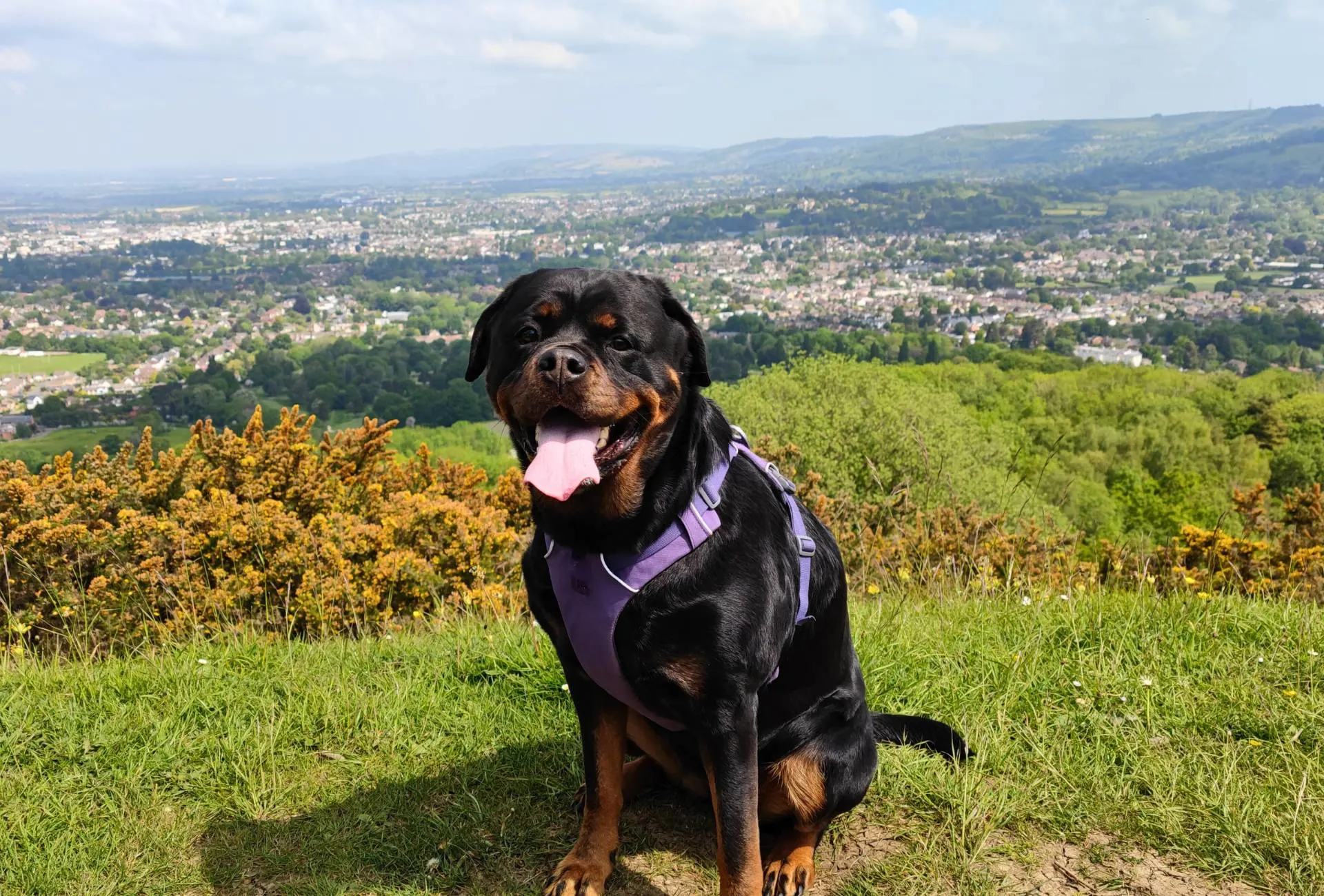
Early socialization and consistent training are essential to channel their intelligence and strength responsibly.
As a fellow Rottie owner, I cannot stress enough how important sufficient mental & physical exercise is to these majestic creatures.
My first guard dog was actually a Rottweiler (check the linked article for more info on that) and it can work but definitely spend some time with an adult one to see if it’d be suitable for you.
Doberman
The Doberman combines elegance with power, making them an excellent choice for guard dog duty.
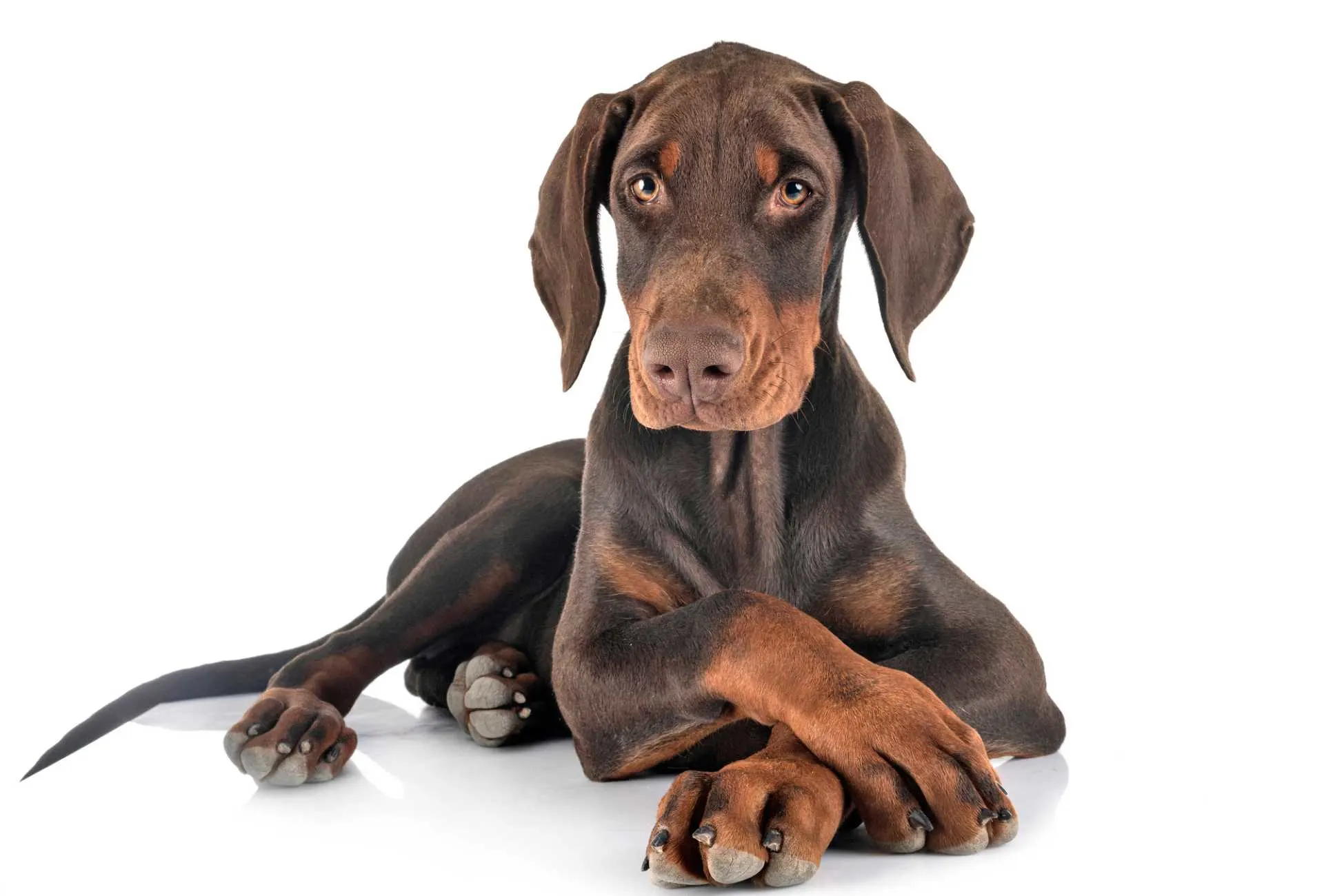
The Doberman’s sleek statue, high sensitivity, and ability to be handled easier than heavier guard dogs makes them a great fit for women.
Cane Corso
With an imposing presence, the Cane Corso oozes confidence. As natural guardians, they form close bonds with their families.
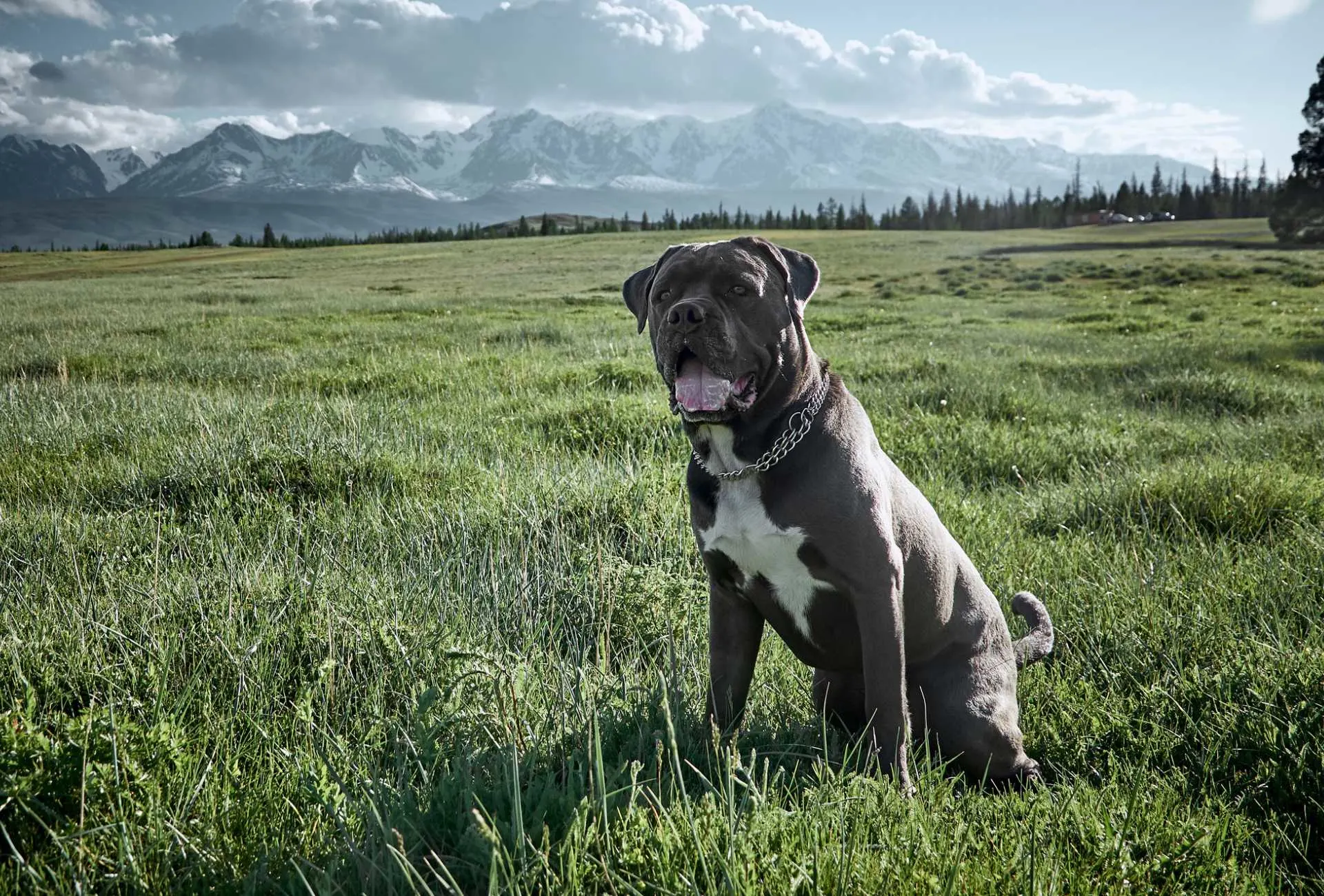
Early socialization and science-backed training are crucial to mold them into good canine citizens.
Nobody wants a 100+ pound liability at their hands so don’t get one if you’re not confident you can handle one.
Belgian Malinois
Possibly one of the most under-exercised pet dogs in existence, the Belgian Malinois is an incredibly versatile working dog.
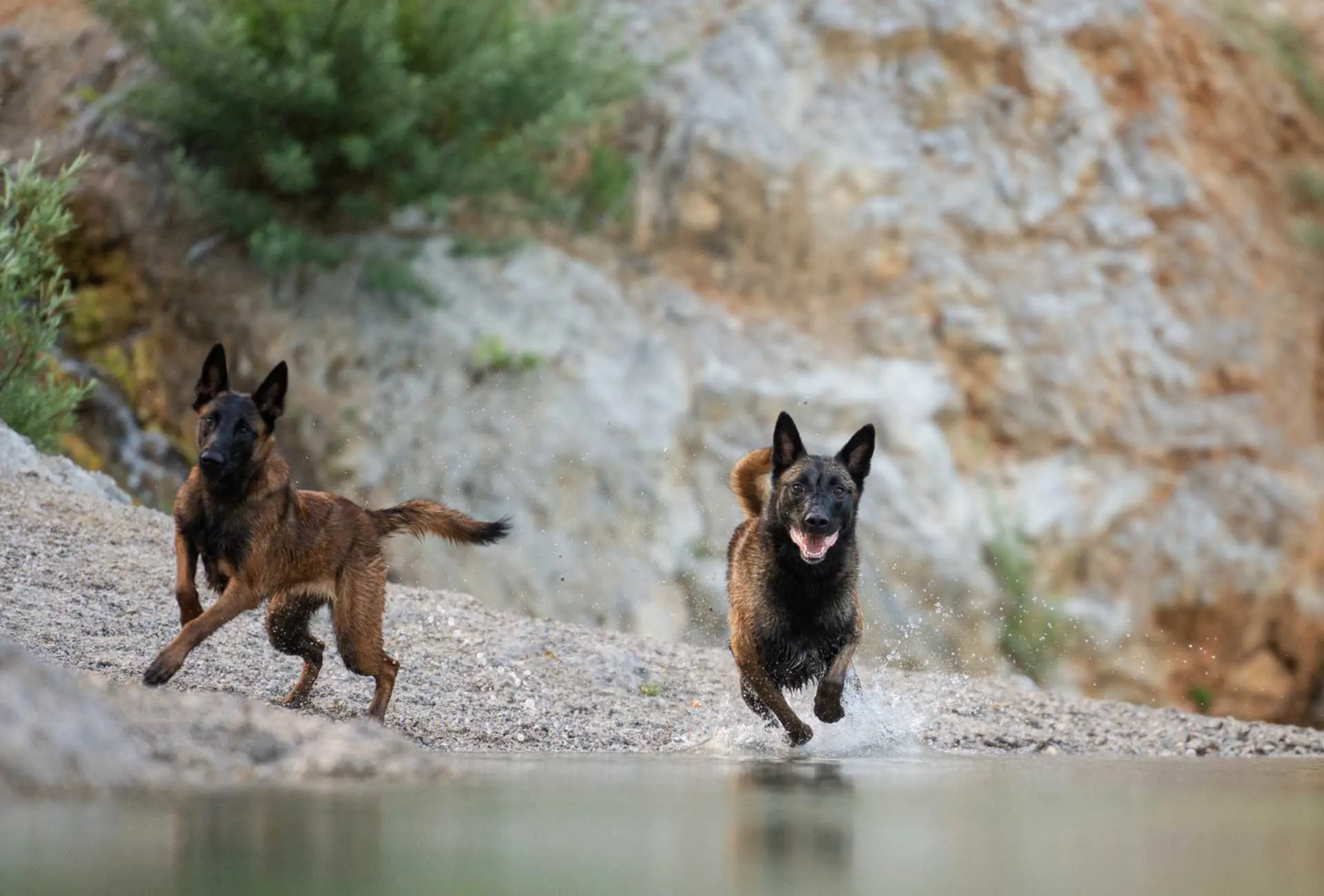
If adventures are your thing and you have the financial resources, time, and knowledge – go ahead and get one of these fierce protectors.
But make no mistake, this dog is no couch potato and can be a very intense four-legged companion.
German Shepherd
German Shepherds have been used for protection work for ages and are popular picks for families around the world.
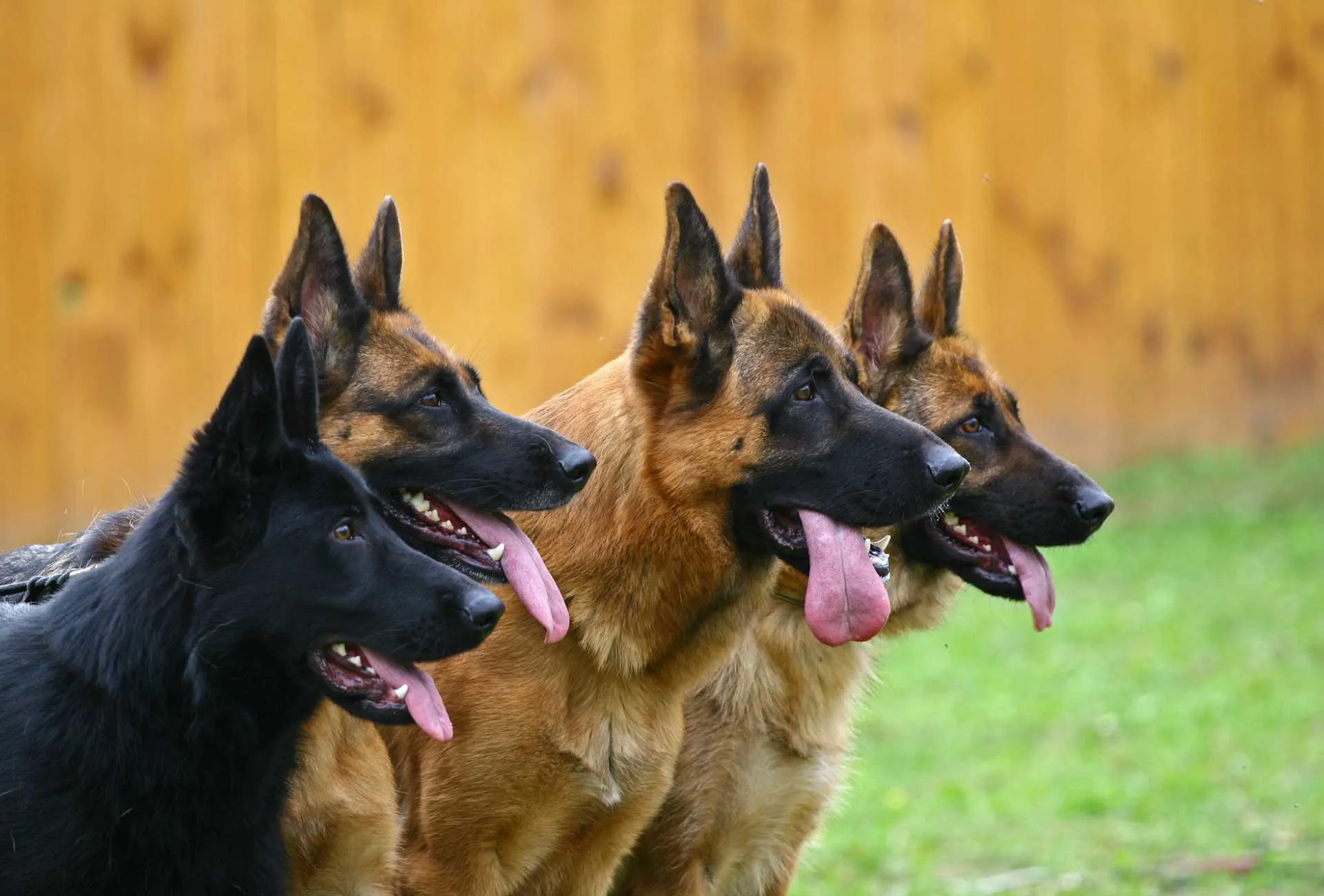
Since this breed is more common than other guardians, it might be easier to find good trainers who are knowledgeable about this specific breed.
Newfoundland
Many women will appreciate that Newfoundlands are gentle giants by nature, whereas potential threats will be repelled by their mere presence.
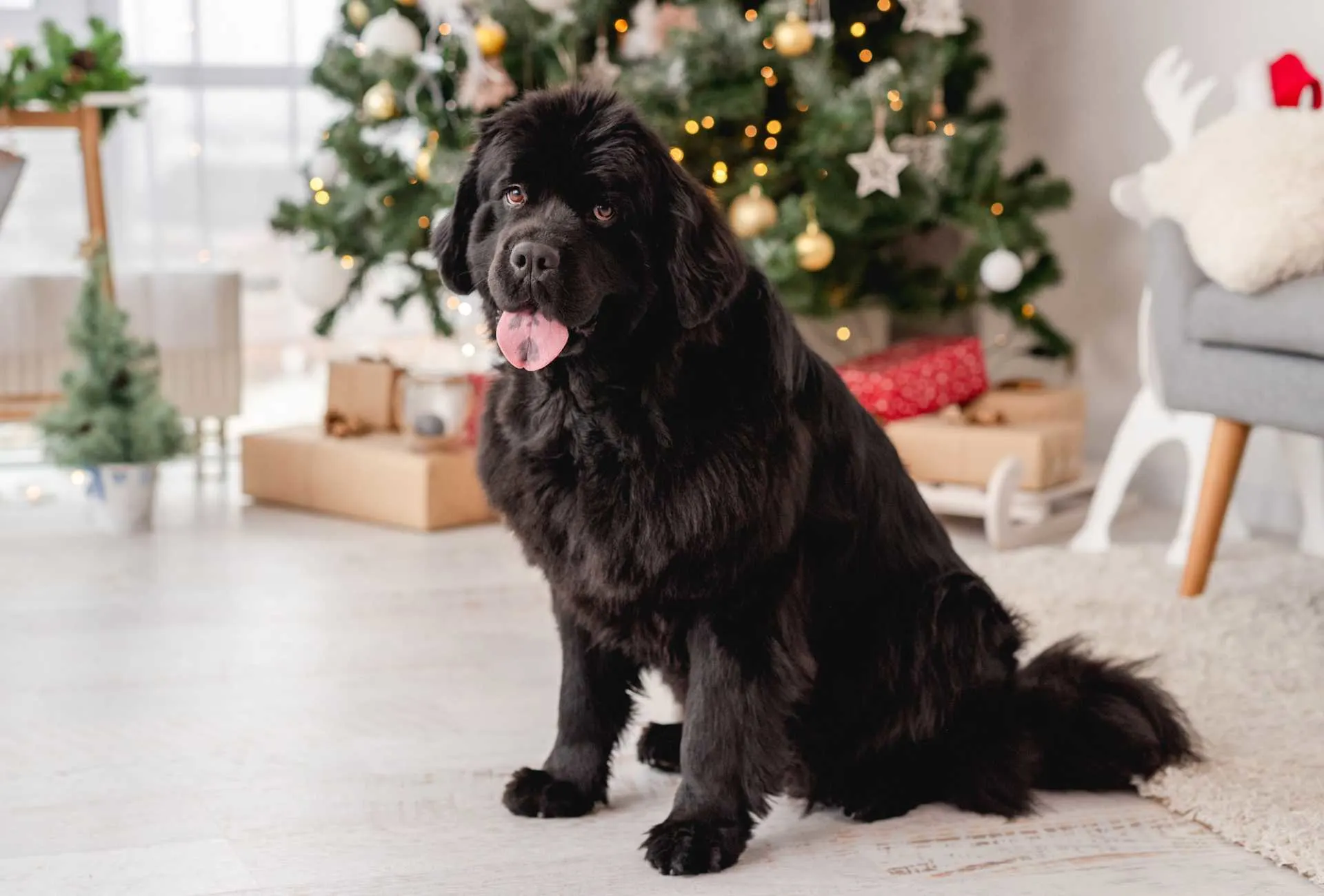
Early socialization is crucial to ensure their friendly nature extends to strangers but that’s also their pitfall. Newfies might not make the greatest property guardians as they’re just too welcoming.
Great Dane
Great Danes will deter more than protect in a literal sense. Don’t rely on them as they’re really just Softies.
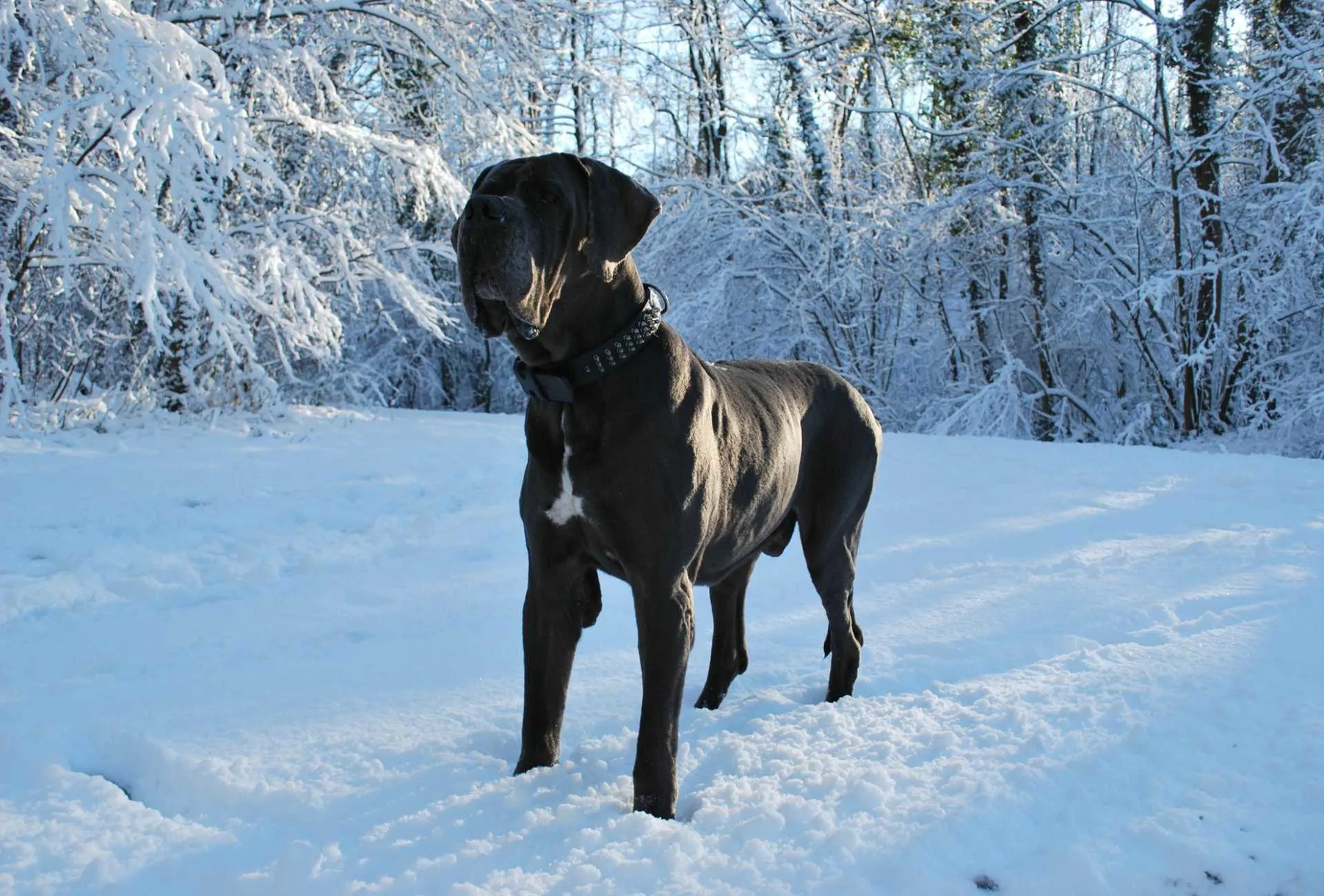
In the end, the Great Dane strikes the balance between a watchdog and goofy companion for a woman.
Boxer
Boxers are naturally alert, playful, and fiercely loyal, making them devoted guard dogs.
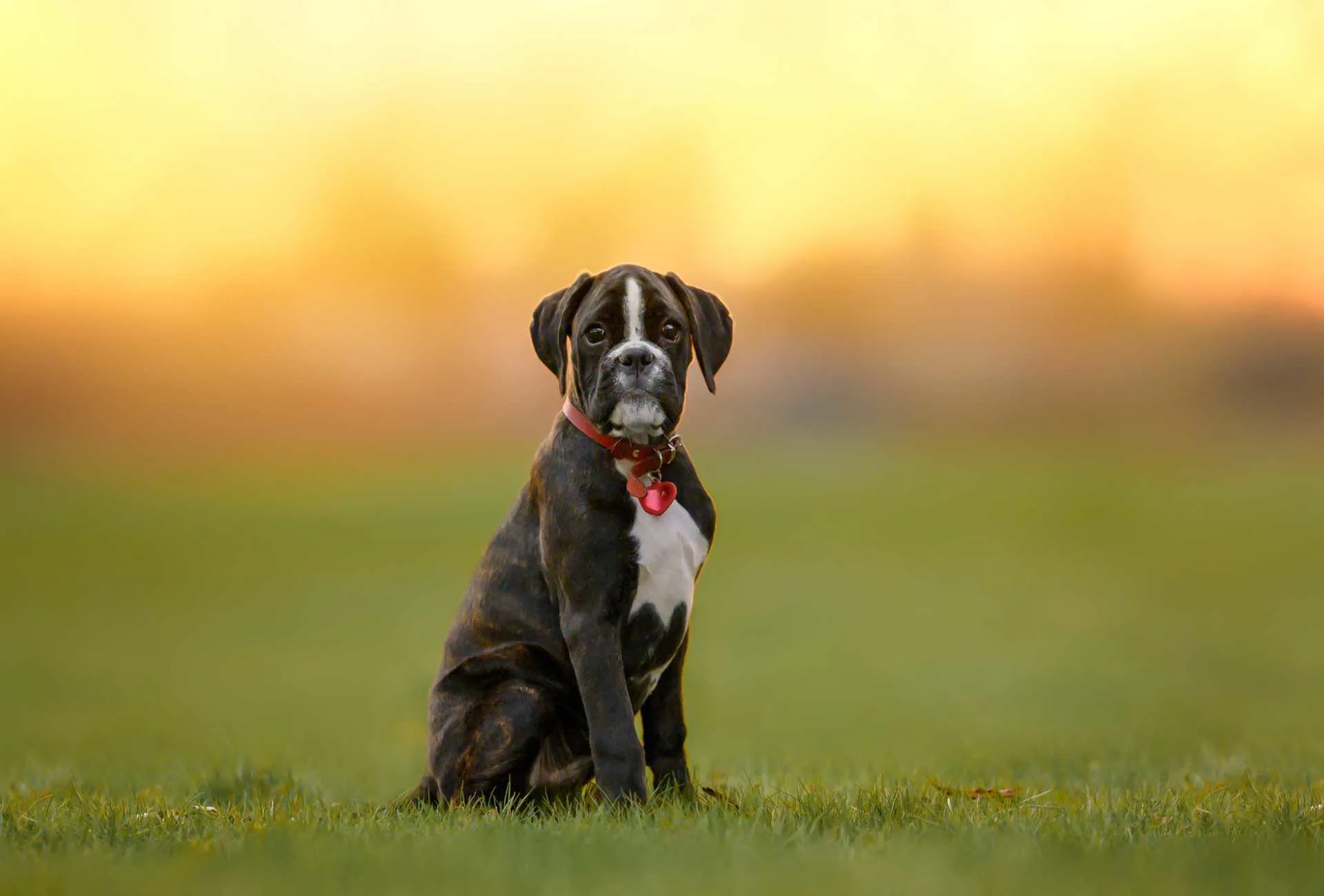
Bernese Mountain Dog
Affectionate, loving, and of a calm disposition – that’s what we usually associate with the Bernese.
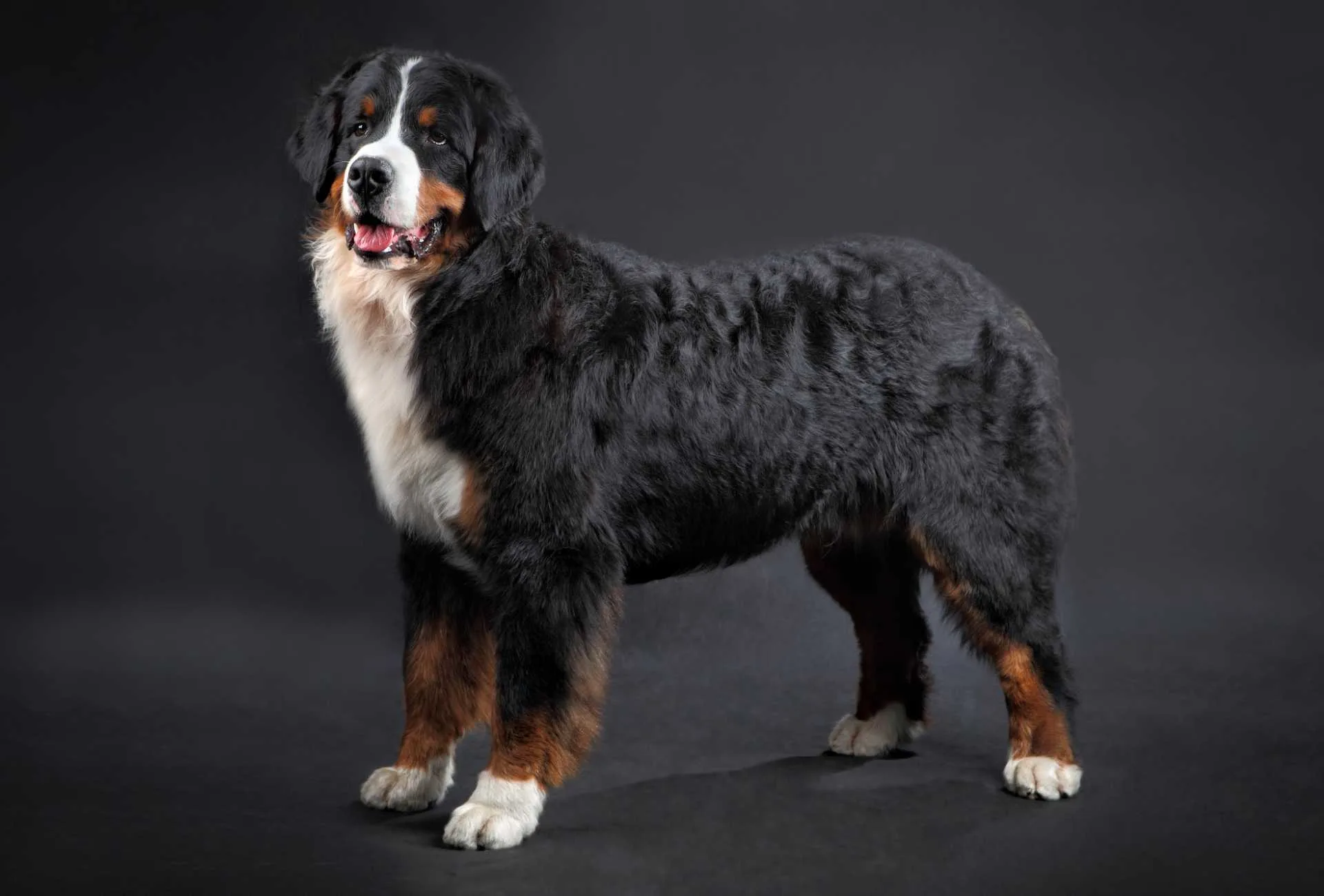
While they’re not guarding dogs per se, their large size will deter intruders while their fluffy coat invites children.
Due to their calm disposition, they can make ideal pets for women but keep in mind that they do require lots of grooming.
Appenzeller Sennenhund
Depending on your area, this breed may be lesser known but their determined character and daunting bark make them a suitable guard dog for women.
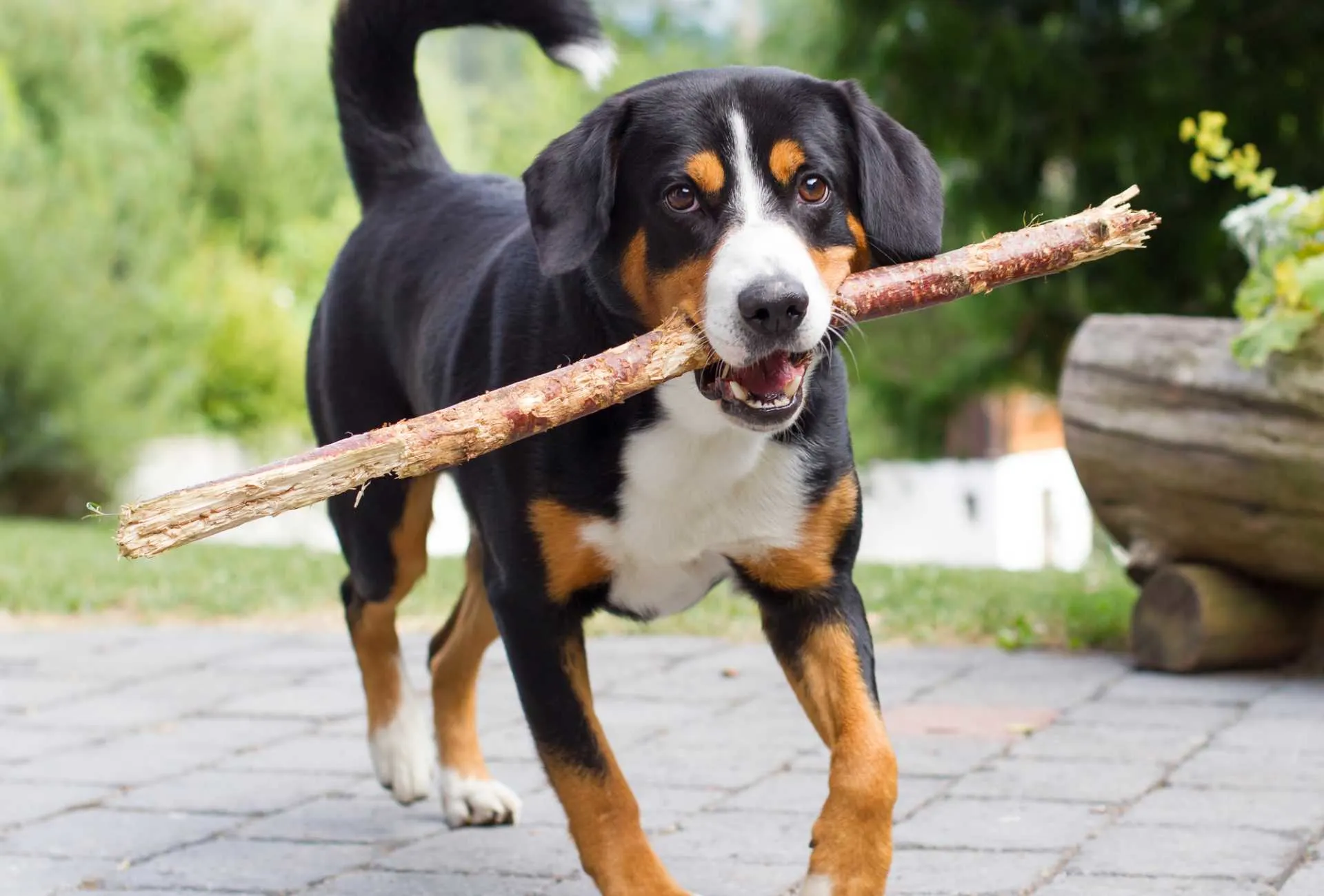
This breed thrives with daily physical and mental challenges, definitely a more active dog than their close relative, the Bernese Mountain Dog.
Giant Schnauzer
Giant Schnauzers are not commonly seen as the top pick for guard dogs but they are, in fact, one of the few breeds used for protection work.
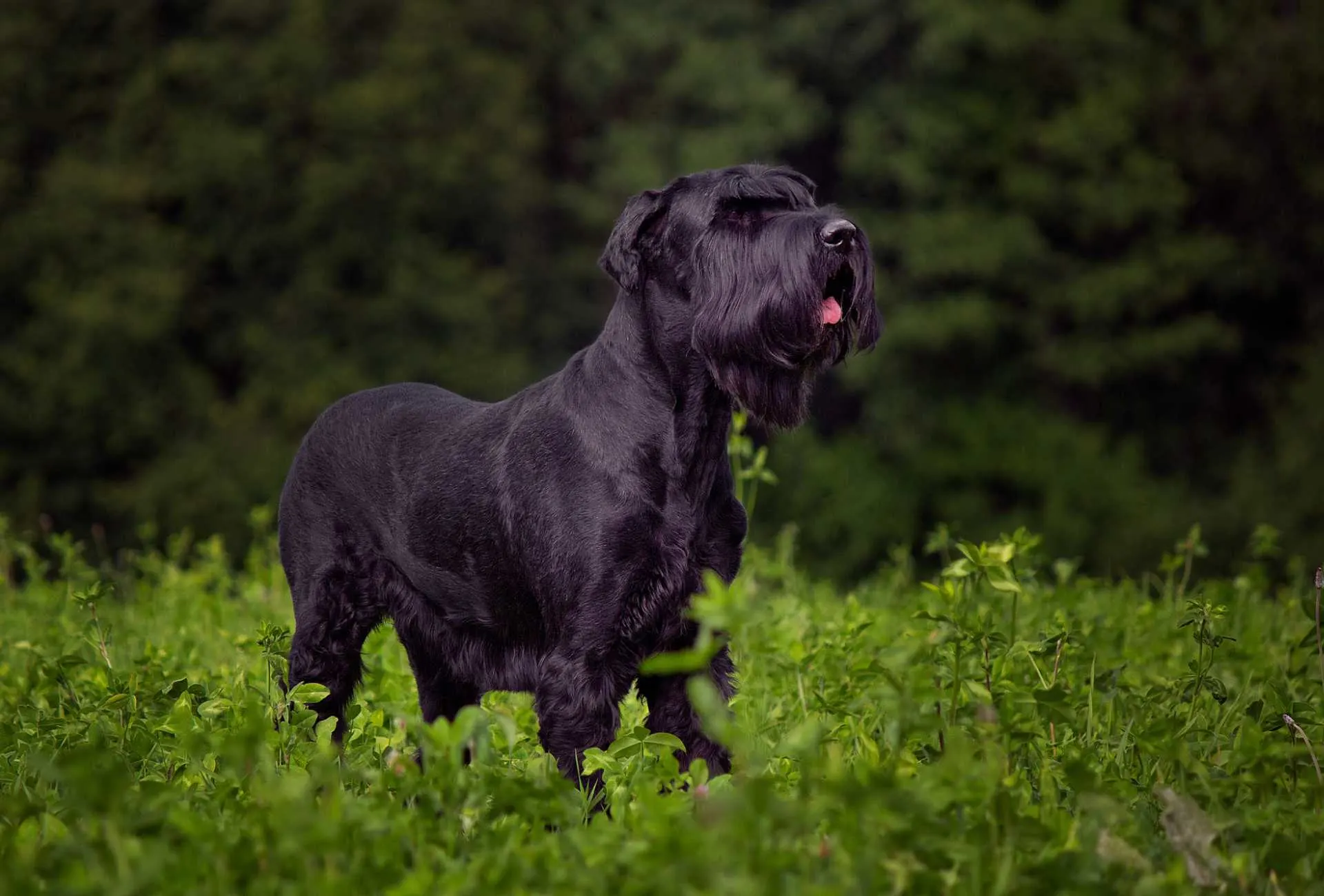
Alert protectors with a somewhat less intimidating physical presence when compared to breeds such as the Rottweiler.
Akita
Akitas are known for their composed and dignified demeanor but they’re also fiercely loyal.
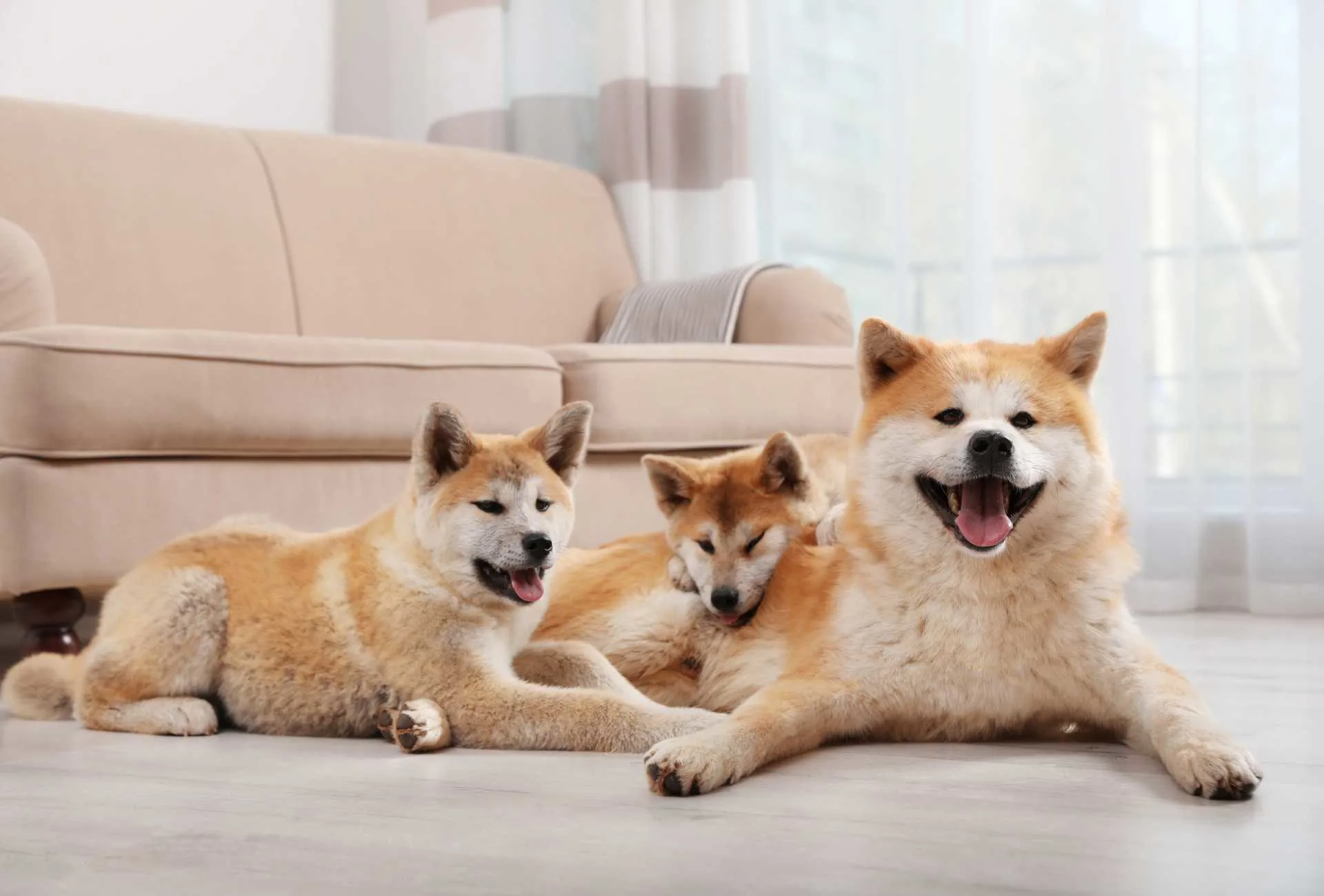
Naturally, everybody who has heard Hachiko’s story knows that already.
To make sure they’re well-adjusted, lots of socialization and training will be required. Not the ideal breed for a daily dog park visit.
Jack Russell Terrier
Jack Russell Terriers are small but very spirited and fearless dogs.
They’re surprisingly effective when you just need that snappy bark but less so if you need true protection skills.
Studies have shown that having a dog inside the house deters potential attackers.
Here’s my little quiz if you have no clue and just want a general direction.
No Dog Is Born a Guardian
No dog on this list is born as a failsafe guardian.
Most of these breeds have tendencies to protect and while there are obvious advantages to a Rottweiler or Cane Corso, they might not be manageable for every woman.
The aforementioned protective skills will be your downfall once they slightly digress into reactivity or even aggression.
Not all women – or men for that matter – will be adequately equipped and prepared to deal with an out-of-control 120-pound block of meat.
All dogs require socialization, care, and exercise but guardians also require training to encourage their protective skills in a measured way.
Don’t go overboard but don’t sit and pray either.
Naturally, a Rottie will be more receptive to developing these traits but might be far more difficult to handle when compared to a Boxer or Bernese Mountain Dog.
Pick what suits your lifestyle and don’t overestimate what you can do or even need.
If you’re on the fence, I’d recommend spending a day with a large guardian breed. This is the best way to get started and evaluate whether you can handle a big doggo.
I’d never recommend anyone to protection-train their dog at home.
Only attempt this under professional supervision and consider other ways to stay safe.
The truth of the matter is that most women will not need a conventionally trained protection dog.
Also, if you have received any threats or have reason to believe you are in danger, do not rely on your dog and contact the authorities instead.
Disclaimer: This blog post does not substitute veterinary attention and does not intend to do so. I am not a veterinarian or pet nutritionist. If your dog shows any sign of illness, call your vet.